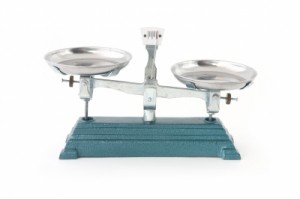-

Tefillin Gassot Medium Size – תפילין גסות בגודל בינוני
$1,196.00 Add to cart -

Regular Sized Rambam Tefillin Mehudarim
$1,680.00 Add to cart -

Medium Rambam Tefillin Mehudarim
$1,886.00 Add to cart -

Tiny Mezuzot on Klaf
$126.00 Add to cart -

שיר השירים מאוייר עם פרחים – Illuminated Shir Hashirim
$5,001.00 Add to cart -

Sofer Stam – Scribe Workshop – Tefillin
$326.00 Add to cart -

עטרה רימונים + 4 פינות – רקמה
Read more -

טלית רקמת פסים
Read more -

טלית רקמת יד מלאה
Read more -

טלית רקמת יד – עטרה + פינות רקמת יד
Read more -

Talit – Traditional Shawl Style Talit – With Techelet – Rambam 13 disks
$206.00 Add to cart -

4 מזוזות מהודרות על קלף
Read more

In Perashat Hachodesh and during Passover we often discuss the passover Sacrifice that we used to do in the Holy Temple in Jerusalem. It says: in Shmot – 12- 21:
Draw out, and take you lambs according to your families, and kill the passover lamb.
The following illustrates a growth experience. As you grow in life you find that you need to abandon previous beliefs. These might be your own beliefs or those of your parents, or maybe just a small developmental step which involves your personal renewal.
…On the tenth of the month’ Rabbi Yochanan says the Passover Sacrifice is only good when owned by the individual and you say take it on the tenth? Instead this teaches us that the Jews tied the sheep to their bed posts on the tenth and the Egyptians would enter and see this scene and they would die from the site. Rabbi Chiya the son Rabbi Ada from Jaffa says extend and take for yourselves sheep for each family and slaughter the sacrifice this teaches us that each one would take the Egyptian G-d and slaughter it in front if the Egyptians…
Sometimes it is good to make a public statement for what you believe in. When you see something which is wrong you should stand up against it. This applies even if the terrible thing is a powerful belief.

A nice illustration of this concept is a common story. Many Jewish parents feel that Judaism at best takes a secondary role in our lives. They believe that the modern world has much more to offer than Torah. They do not realize that a good Jewish education is superior to any public school education.
Very often a child rebels against his parents and goes away to Israel to study in a Yeshiva. Such children have not accepted their parents beliefs.
The parents feeling of rejection can be so devastating that they feel as if they are going to die. They see no difference between Torah Judaism and the Moonies.
These children have in essence slaughtered the gods of the Western world. They have declared themselves free.
The Month of Nissan is a new beginning. Let us be free during this month of freedom.
.jpg)



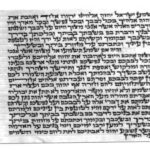

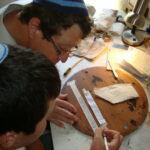

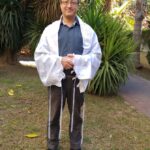
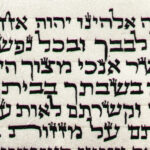
 The Book of Iyov is very long and primarily discusses this subject: Iyov was a very wealthy man with children and flocks and all that. He was a very righteous person. Despite his righteousness G-d allowed The Persecutor to take away his wealth, kill his sons and to give him leprosy. In his suffering he considered his past actions to be completely righteous. Therefore, G-d had no reason to punish him. He questioned whether there was justice behind G-d’s actions.
The Book of Iyov is very long and primarily discusses this subject: Iyov was a very wealthy man with children and flocks and all that. He was a very righteous person. Despite his righteousness G-d allowed The Persecutor to take away his wealth, kill his sons and to give him leprosy. In his suffering he considered his past actions to be completely righteous. Therefore, G-d had no reason to punish him. He questioned whether there was justice behind G-d’s actions.




